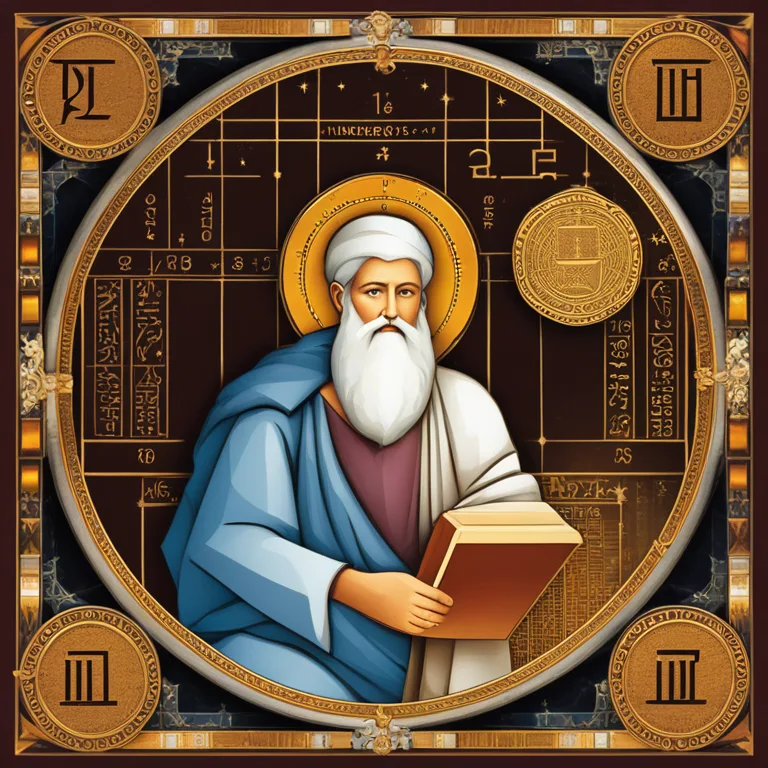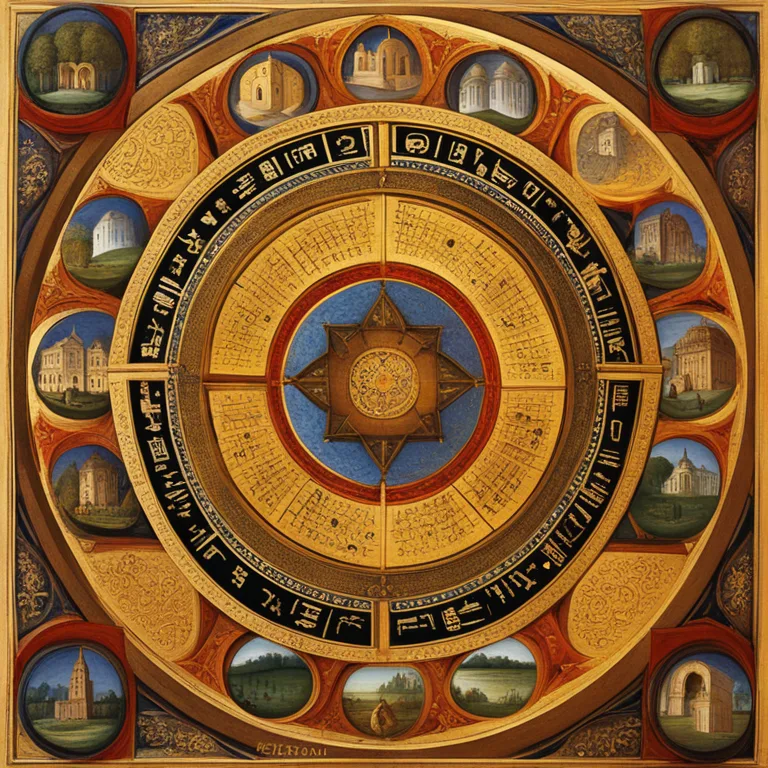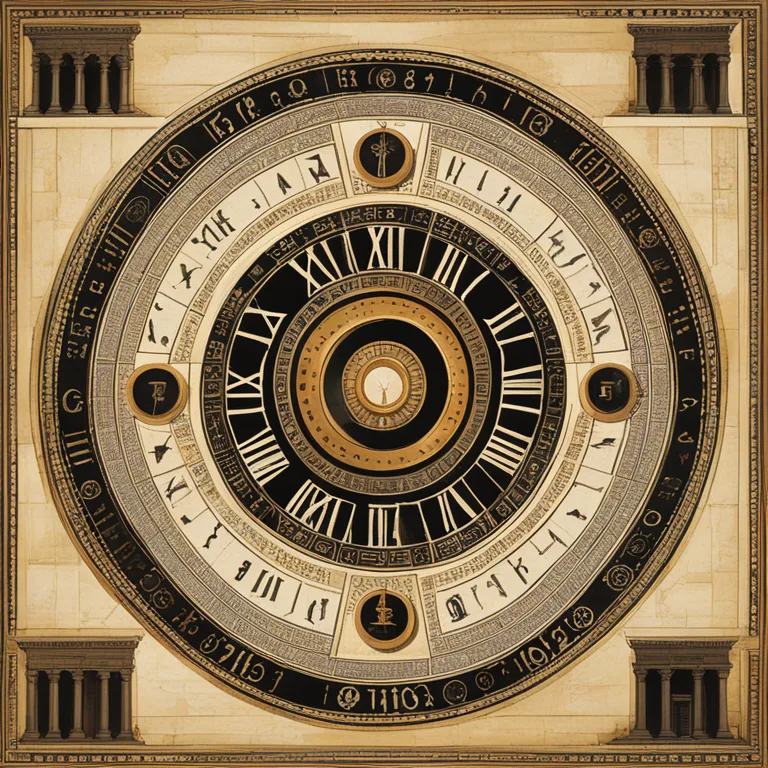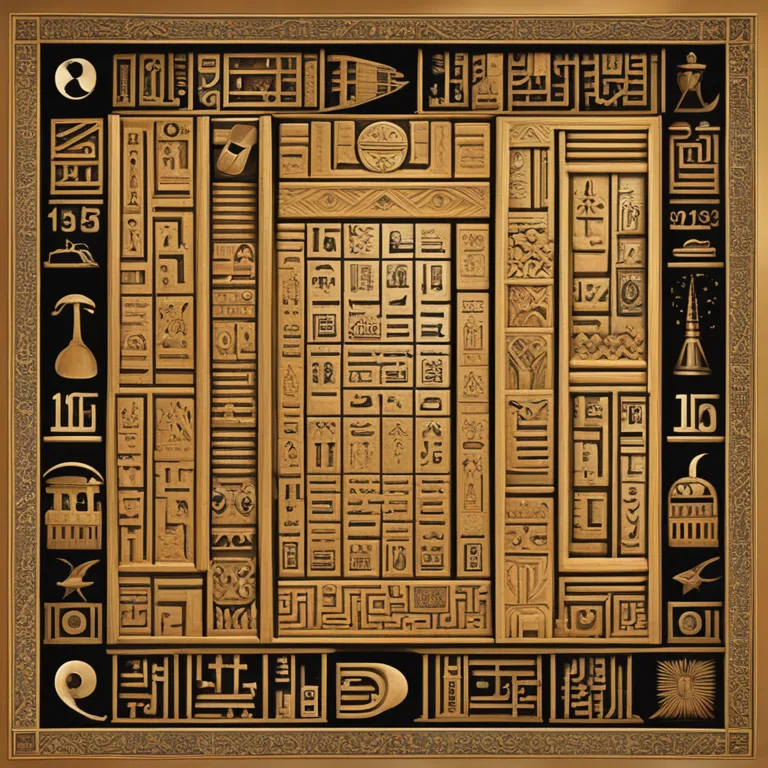
Numerology: An Ancient Practice
Trace the roots of numerology to understand its formation and the influential minds that contributed to its development as a mystical art form.
article by Sofia Ferguson
Ancient Beginnings of Numbers
Numerology, the mystical study of numbers and their significance in our lives, is an ancient practice with its roots entwined in the historical tapestry of various civilizations. Though it is challenging to pinpoint a single founder, numerology's earliest applications can be traced back to the legends of Mesopotamia, Egypt, and Babylon, where numbers were believed to possess both spiritual significance and magical properties. Sumerians and Babylonians, with their advanced understanding of mathematics, laid the groundwork for numerical interpretation, associating numbers with the divine and using them in rituals.

Pythagoras: The Father of Modern Numerology
The mathematician and philosopher Pythagoras, born in Greece around 570 BCE, is often heralded as the father of modern numerology. His belief in the fundamental relationship between numbers and the cosmos transitioned numerology from a tool of the ancients to a structured doctrine. Pythagoras and his followers, the Pythagoreans, posited that the world was built upon the power of numbers and that each number held its own vibration and meaning. Under Pythagoras, numerology became a studied and practiced form of knowledge, paving the way for its future evolution.

Expanding Numerology in the Roman Empire
The Romans, known for blending various cultural elements of the lands they conquered, also embraced numerology. Influential scholars and mystics during the Roman era, such as Cornelius Agrippa and St. Augustine, contributed to the rich tapestry of numerology with their work. Agrippa, in his Occult Philosophy, provided comprehensive insights into numbers' occult significance, while Augustine proposed that numbers were a universal language provided by God.

The Revival and Expansion in the Middle Ages
Numerology saw a revival in the Middle Ages and Renaissance as a part of the renewed interest in mysticism and the esoteric arts. Cultural exchanges between Islamic scholars and the Western world introduced new numerical concepts and practices. The Kabbalah, a form of Jewish mysticism, further influenced numerology with its system of Gematria, which assigns numerical value to Hebrew letters, allowing for the interpretation of words and phrases as numbers.

Modern Numerology's New Directions
The practice continued to adapt and grow into the 20th century, where figures such as L. Dow Balliett and Dr. Julian Stenton played key roles in shaping contemporary numerology. They fused Pythagorean principles with modern psychology and spirituality, making nuanced interpretations of individual personalities and life paths accessible. As we look to the future, numerology continues to evolve with technological advancements and cultural shifts in spiritual understanding, making it as relevant now as it was to our ancestors.
Published: 12/21/2023
Modified: 12/21/2023
More predictions
Come back here soon to learn more about yourself and your future


Insights for Personal Year 2 in Numerology
Discover the resonances and potential of Personal Year 2 in numerology, guiding personal growth and relationships.


Numerology: A Historical Insight
The article delves into the historical inception of numerology, tracing the roots and evolution of this ancient practice.


The Mystique of Name & Birth Numerology
Discover how your name and birthdate reveal your unique numerological profile and life path through the ancient practice of numerology.